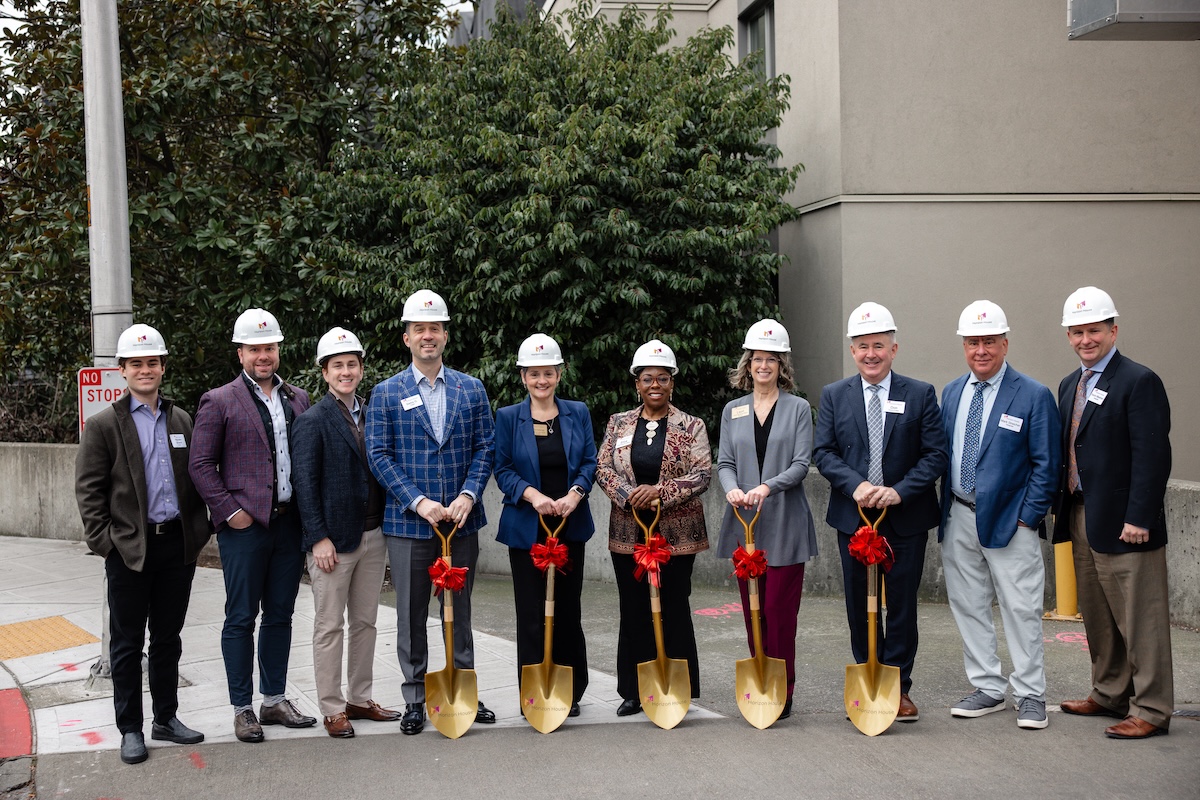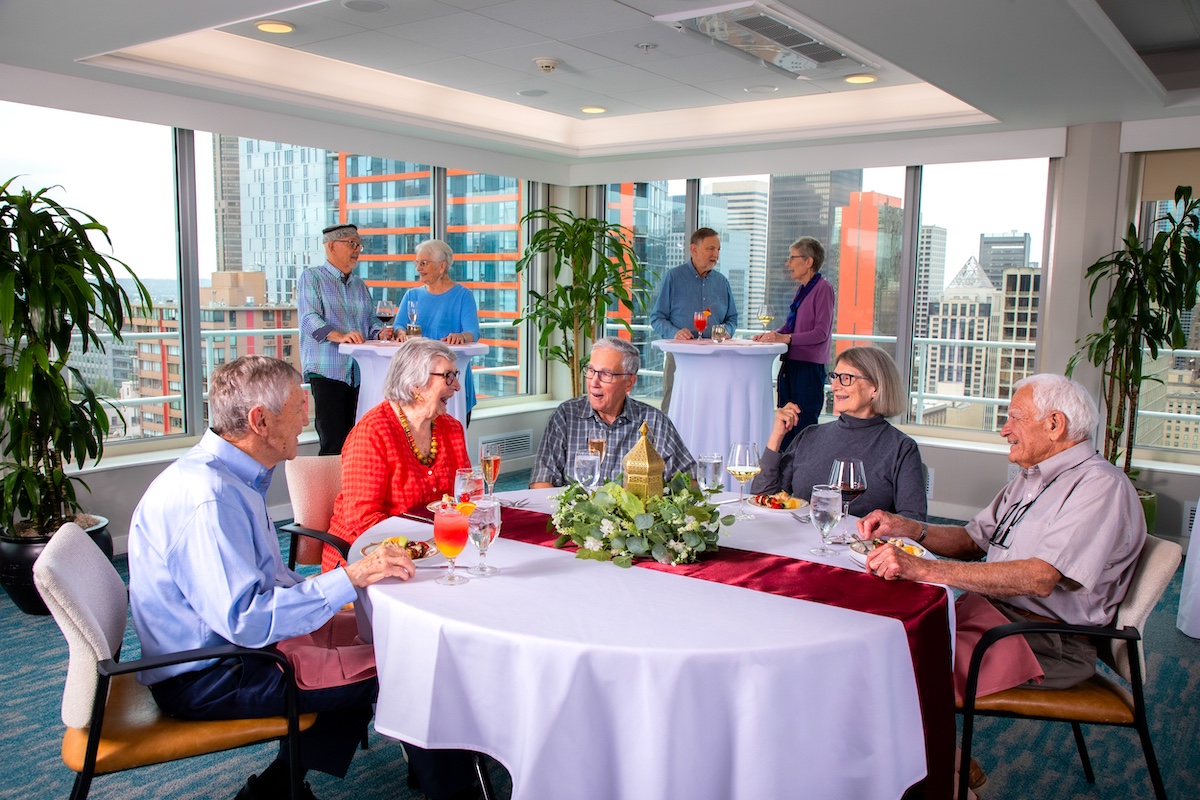4-minute read
If you’re reading this, you’re already asking the right question.
And here’s something you’ll hear from nearly every resident at Seattle retirement communities like Horizon House: “I wish I’d done this sooner.”
Not because they waited until they needed help, but just the opposite. 2022 research from the Finnish Retirement and Aging Study shows that people who proactively plan for retirement living experience a dramatic improvement in life satisfaction. The study found that those who took the time to choose their communities based on values and lifestyle enjoyed the highest gains in what researchers call the “easiness domain”—freedom from daily stressors like home maintenance and isolation.
In other words, the science backs up what residents keep saying: Earlier is better.
What Waiting on Retirement Planning Really Costs You
Here’s what catches people off guard about planning for retirement living: Life Plan Communities have health and mobility requirements for entry. That’s because they need to ensure they can serve residents appropriately throughout the continuum of care. And waiting lists at desirable communities can stretch for years.
By the time you feel “ready,” you might:
- Wait 2-3 years on a waiting list, which almost all desirable communities have
- No longer meet the health requirements for independent living admission
- Miss the specific floor plan, view, or location you wanted
- Face significantly higher pricing than current depositors
- Miss the chance to build new friendships during that exciting ‘everything is new and everyone’s meeting everyone’ phase—the same social momentum that made college or your first job so memorable
Life Plan Communities create natural opportunities for connection that simply don’t exist when you’re maintaining a house in an established neighborhood. The residents who love it most are those who arrived ready to meet people, join committees, and dive into that ‘I can’t believe how many interesting people live here!’ experience.
This isn’t pressure—it’s timeline-based reality. Which is why exploring communities now makes sense even if you’re years away from moving. You’re gathering information and securing options while you have complete choice, not scrambling when circumstances force a decision.
Think of retirement planning like applying to colleges senior year instead of waiting until you’ve graduated. Same principle.
What Planning for Retirement Living Now Gets You
The happiest, most engaged retirement community residents are often those who moved while still working or in early retirement. They moved while they were young enough to fully enjoy it—and healthy enough to qualify.
Here’s what planning for retirement living at Horizon House really means:
A Community Built on Contribution and Connection
You don’t just stay busy; you contribute meaningfully. The community is fueled by more than 60 resident-led committees and groups, from environmental initiatives exploring carbon neutrality to creative programming and civic engagement, that allow you to build deep friendships immediately.
“An art object is just an object. The real art is the interaction that happens around it.”
— John P., Art Committee Chair
True Urban Seattle Living
Not a suburban campus—downtown Seattle, walkable to Pike Place Market, Seattle Art Museum, and the city’s cultural heart. As resident Gary F. puts it, “People see how we’re living and realize they want the same thing.”
Advanced Intellectual Engagement
You’ll find lifelong learning programs that treat you like the accomplished person you are, alongside conversations with neighbors who have built companies, led organizations, and shaped policy.
More Choices and Better Options
For example, future residents of our West Tower expansion are securing preferred floor plans, views, and pricing that could change later. And choice is exactly what planning ahead gets you.
What Might Be Holding You Back
Finally, let’s talk about the permission you—and many seniors—might be waiting for that’s never coming.
Nobody’s going to tell you it’s okay to leave the house where you raised your kids or that you’ve done enough yard work for one lifetime.
The thing is this: You’re allowed to want more. You’re allowed to pursue intellectual stimulation, meaningful connection, and creative pursuits instead of weekend projects.
The house served its purpose beautifully. Now, when you sell, it gives you its greatest gift—the resources to design what comes next. And for the family who buys it? Your house becomes the foundation for their memories, their children’s growth, and their new beginning.
You’re not abandoning it. You’re completing its purpose.
What to Do Next
Research consistently shows that the retirement transition brings improvements in well-being—particularly in stress reduction and social engagement. But those benefits amplify when the transition happens proactively, not reactively. When you choose based on fit and values, not emergency and availability.
You’re not too young to plan for retirement living. You’re exactly the right age to start exploring what the next chapter could look like.
Take our Retirement Living Readiness Assessment (PDF) and see where you are. It’s not about whether you’re “old enough” or “need help.” It’s a strategic tool for independent thinkers who want to make proactive decisions. No pressure. No judgment. Just insights from an honest conversation with yourself about what you want next.
Ready to see what proactive planning for retirement living looks like? Visit HorizonHouse.org or call 206-382-3100 to schedule your personal tour of Seattle retirement community Horizon House.
Let your house give you its greatest gift—and step into what comes next.




